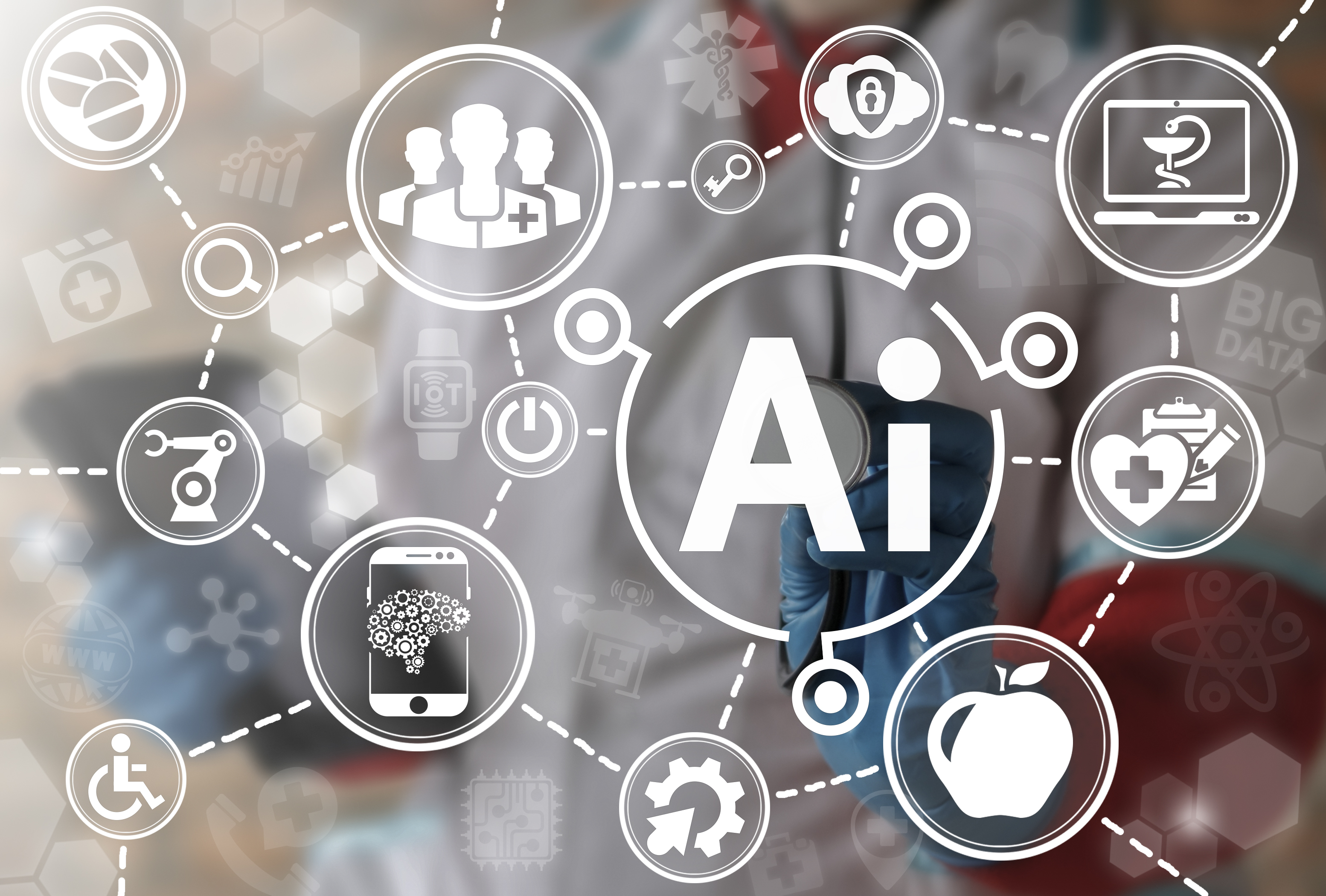
What Will AI Bring in 2018? Experts Sound Off

(Rasica/Shutterstock)
Artificial intelligence had a breakout year in 2017. But considering the technological and business momentum, AI is poised to have an even bigger year. Here’s a peek at what AI could bring us in 2018 year according to industry and tech experts.
Forrester says the honeymoon for AI is over. “CIOs will move away from the lift-and-shift approach to AI tech implementations, and new applications of blended AI will increasingly be used to improve customer service and sales processes in the New Year,” the analyst group writes. “In addition, Forrester predicts that AI will make decisions and provide real-time instructions at 20% of firms and will increasingly be used for visual experience.”
There’s a lot of hype around AI, owing its great potential to affect change. As the technology matures, organizations should be aware of the different manners they can utilize it, says Ron Agresta, director of product management for data analytics giant SAS.
“Moving beyond the hype of machine learning and AI, extracting real value from projects in these areas to deciding if and where technologies like natural language processing fit into broader enterprise data management and analytics projects. It’s important for organizations to get the correct balance of ‘offensive’ (being agile and exploratory with data) and ‘defensive’ (governance and control of data) approaches to solving data-centric problems,” he writes.
As the hype surrounding AI peaks, we’ll start to get more real about what the technology is capable of, says Chad Meley, vice president of marketing for Teradata.
“While the hype dies down, AI infrastructure improves dramatically,” he writes. “There will be a ‘backlash’ on AI Hype in 2018, and a more balanced approach of deep learning and shallow learning application to business opportunities will emerge.”

(Aniwhite/Shutterstock)
AI so far has over-promised but under-delivered. Will 2018 change that? Jon Lee, co-founder and CEO of ProsperWorks, sounds off on the matter.
“As interest in AI has grown, so has the interest in its potential to bring sweeping changes to the way we work. However, regardless of DeepMind’s ability to beat the best Go player in the world, to date AI’s impact on the enterprise has been minimal,” Lee writes. “In 2018 the attention will be on results, not hype. The smartest enterprises will focus on ensuring their machine learning and automation capabilities bring measurable business results, leaving the trendier gimmicks to marketing departments.”
AI deserves the same treatment that Hadoop and other highly hyped big data technologies have received, according to Arcadia Data VP of marketing Steve Wooledge and senior director of products and solutions Dale Kim.
“If the industry is trying to balance the hype around big data-oriented products, it has to make sure not to overhype the arrival of AI,” Wooledge and Kim writes. “This is not to suggest that AI has no place in current and future-looking big data projects, just that we are not at a point in time yet where we can reliably turn business decision-making processes over entirely to machines. Instead, in 2018 the industry will begin to modernize BI with machine assistance rather than AI-driven tasks…We’re so enamored by the idea of AI, but the reality is it’s not ready to act on its own in the context of analyzing data for business users.”
There are lots of parallels between AI and big data. Just as organizations struggled to move big data projects out of the experimentation phase and into production, they’re finding it difficult to get AI running. Kinetica CTO and co-founder Nima Negahban says this could start changing in 2018.
“The complexity of technologies used for data-driven machine and deep learning has meant that data scientists spend less time coding and building algorithms and more time configuring and administering databases and data management systems,” Negahban tells Datanami. “In 2018 investments in AI life cycle management will increase and technologies that house the data and supervise the process will mature.
Knowledge extraction from unstructured text is one area where AI will excel in 2018, says Ken Hoang, vice president of strategy and alliances at Alation.
“Semantic processing at scale can finally extract relevance from documents and tie it to structured data assets, bringing a true, 360-degree view into an enterprise’s customers, partners, products and other key assets,” he writes.
One person with relatively low expectations of what AI will enable in 2018 is Softvision Full Stack Guild Master Forest Carlisle.
“Companies today know they can gain a competitive advantage by leveraging machine learning and artificial intelligence, but won’t start any real initiatives in 2018,” Carlisle writes. “Most don’t understand the extent to what is possible, don’t know their data, and really don’t know how to even start. Digital transformation partners that can show expertise and how to take companies on this journey will be the catalyst for real investment in this space.”

(Panchenko-Vladimir/Shutterstock)
In 2018, AI will need to either put up or shut up, according to Toufic Boubez, the vice president of engineering on AI and machine learning at Splunk.
“Artificial intelligence and machine learning are often misunderstood and misused terms. Many startups and larger technology companies attempt to boost their appeal by forcing an association with these phrases. Well, the buzz will have to stop in 2018,” Boubez says. “This will be the year we begin to demand substance to justify claims of anything that’s capable of using data to predict any outcome of any relevance for business, IT or security. While 2018 will not be the year when AI capabilities mature to match human skills and capacity, AI using machine learning will increasingly help organizations make decisions on massive amounts of data that otherwise would be difficult for us to make sense of.”
Another tech expert who’s cautiously optimistic about AI’s potential is Couchbase SVP of Engineering and CTO Ravi Mayuram, who says 2018 will be dedicated more to laying the groundwork for AI’s future success.
“Today AI is more of a trendy buzzword than practical reality, and it’s difficult to execute because AI is only as good as its data,” Mayuram writes. “While data integrity still varies within the enterprise, true implementation of AI is still a concept that will not come to fruition for a few years. However, we’ve seen early stages of machine learning applications in verticals such as advertising and retail. In the years ahead, we’ll see more industries, including industrial IoT, digital health and digital finance, begin taking advantage of machine learning within applications to provide more meaningful user experiences. Throughout this transformation, the database will play an instrumental role by accommodating rapidly-changing data at scale while keeping big data sets reliable and secure.”
Mark Barrenechea, CEO and CTO of OpenText, says interest in AI will grow across every industry.
“By 2020, the AI market will grow to $47 billion. But how will these investments pay off for the enterprise?” Barrenechea writes. “Equipped with AI and cognitive systems, big data analytics, and machine learning, the insights-driven Intelligent Enterprise will outpace its competition. Better data will mean better algorithms, and better algorithms will mean better data, and so on. We will become much more productive as we offload collecting and processing data to AI systems.”
2018 could be a breakthrough year for AI adoption according to Jerry Overton, a data scientist in the analytics division of DXC Technology.

(Peshkova/Shutterstock)
“While business decision makers say AI is pivotal to their organization’s future success, most have yet to incorporate the technology into their everyday business practice,” Overton writes. “In 2018, we’ll start to see AI in action as companies harness the ‘data exhaust’ from their digital systems to quantify the business and become even more productive. This quantification will emerge as a primary driver of digital transformation. Additionally, in contrast to previous years, companies will use advanced machine learning to make better decisions with less data rather than more.”
Ted Dunning, the chief application architect for MapR, says machine learning will go from “in vogue” to “in production” this year.
“Increasingly, machine learning will be seen as a normal part of business. AI will continue to get buzz, but a much broader set of machine learning approaches will deliver valuable insights to enterprises across many industries,” Dunning writes. “We anticipate that the most successful systems will be where people focus more on the problem than the tool, framing questions correctly and having realistic goals. They also need access to appropriate data at scale and a plan to convert machine learning results into action.”
Organizations have amassed huge stockpiles of data. Will 2018 be the year they finally make sense of it? Scott Parker, the senior product manager at Sinequa, tackles that question.
“Artificial intelligence and machine learning capabilities will make 2018 the year when enterprises officially enter the ‘information-driven’ era, an era in which actionable information and insights are provided to individual employees for specific tasks where and when they need it,” Parker writes “This transformation will finally fulfill the promise of the information-driven enterprise, allowing organizations and employees to achieve unprecedented efficiency and innovation.”
The hype level around AI is high — possibly unsustainable, according to Stuart Frankel, the CEO of Narrative Science.
“The term ‘Artificial Intelligence’ will become obsolete as AI becomes invisible,” Frankel writes, adding “Regulations around AI will be instituted, requiring transparency into AI systems’ decision-making.” Venture capital investment in AI will also hit an inflection point, he writes, while expectations and frustrations in AI will hit “an all-time high.”
The nature of coding will change as a result of AI, according to Johan den Haan, CTO at Mendix, who says software will not be written, but trained.
“The ubiquity and perseverance of artificial intelligence and machine learning will change the landscape of software development,” den Haan writes. “It will become a much bigger part of applications, which means we are not programming apps anymore. Instead we need to train and teach them which requires a fundamental shift in the technical skill sets needed to create software.”

(Mclek/Shutterstock)
Likewise, AI can be applied to other industrial challenges, says Mohit Joshi, president and head of banking, financial services and insurance, and healthcare and life sciences at Infosys.
“The future of business requires artificial intelligence,” Joshi writes. “In 2018, I expect AI techniques to be applied to solve more of the complex engineering problems organizations face in design, testing, and certification of engineering products. By utilizing knowledge management platforms to amplify and augment human decision making, AI can take historical data to make sense of problems that otherwise may not have been solved with traditional engineering.”
AI bots will lessen the burden on human workers, says Calabrio CEO Tom Goodmanson.
“With technology like VR, AI and chatbots on the rise, contact center agents forecast major changes in the industry,” he writes. “Rather than being replaced, agents will have more time and energy to focus on the complex customer issues at hand (that can’t be answered by a robot), rather than performing dull, routine tasks. What’s more, technology like speech analytics will allow agents to translate speech to text, meaning deeper insight and easier search into calls.”
In agriculture, AI will assist rather than eliminate humans from the workforce, says Ashwin Madgavkar, CEO of Ceres Imaging.
“The global population is growing and consuming more as farmers age and the workforce shrinks. AI is needed to bridge the gap, and there will continue to be demand for farmers who can wisely use AI tools, like Ceres imagery, to cover more ground with fewer people.”
The potential for AI in healthcare is massive, says Biotricity funder and CEO Waqaas Al-Siddiq.
“Today, the healthcare industry remains cautious about letting AI make suggestions,” Al-Siddiq writes. “In the coming year, healthcare providers and medical technology companies will experiment more boldly with AI, namely, AI’s ability to make suggestions and tailor feedback based on learning. The capability of AI to improve over time as it amasses more data and learns and refines its algorithms is well suited for medical device technology which is why we can expect to see healthcare organizations entering into partnerships to experiment with AI and more clinical studies being done on the efficacy of it.”
Related Items:
2018 Predictions: Opening the Big Data Floodgates
Top Big Data, AI, and HPC Quotes of 2017
10 Key Big Data Trends That Drove 2017






























